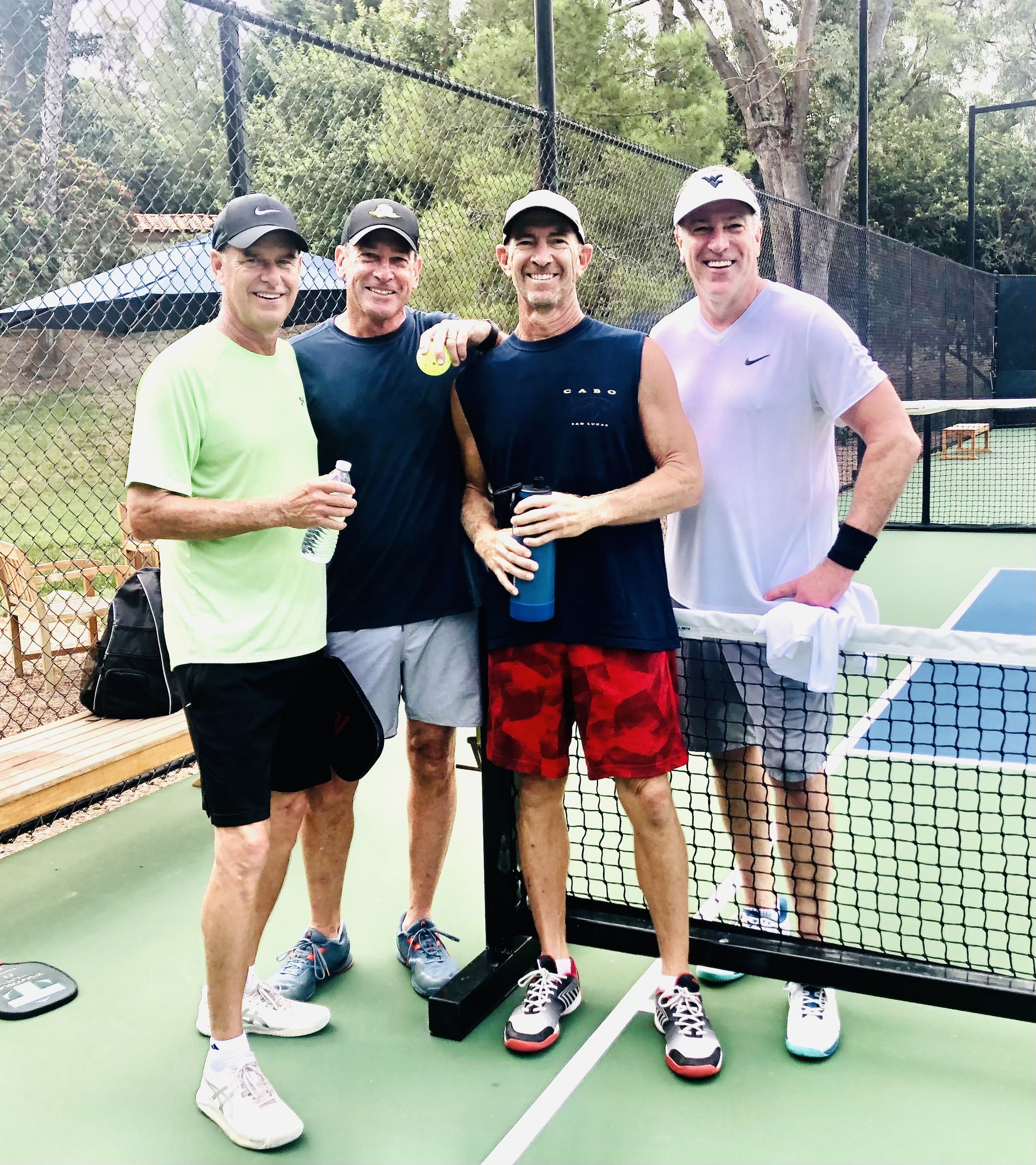Finding You’re Enough
In my first book, Pickleball & the Art of Living, I explore how consciously examining your values, priorities and habits not only enables you to live a more fulfilling life but also improves your pickleball experience. In my second book, The Joy of Pickleball, the focus is on playing better, healthier and happier so that your pickleball experience leads to a more enjoyable life. Developing a mindset that values growth, kindness, and effort brings your best self forward to create a vibrant life and meaningful relationships.
This is a positive approach, encouraging you to do your best, embrace challenge, and live and play joyfully. However, there is a hidden message that lurks beneath the surface in these books.
It’s like a river that you can barely hear in a dense forest as you hike a shadowy trail. It whispers of deeper meanings that we sometimes lose sight of in our life of striving and doing.
You see, I want you to live well and play well, but my fondest wish for you and me is to just be okay.
That may not sound like a lofty goal, but being okay is one of the things that sometimes takes a long time to figure out. It’s accepting when you come up short as you try to be everything to everyone and never miss a shot. It means letting your emotions run through you when you fail, get old, get hurt, say the wrong thing, or hit a terrible lob that gets smashed at your partner — but then allowing those emotions to subside as you acknowledge your fallibility and embrace equanimity.
Learning to accept and even embrace your life situation is the most direct path to happiness.
Cabo and me, embracing our life situation.
It’s not winning more games or getting a new car or creating an impossibly perfect image on Facebook. Otherwise, when you inevitably screw up or don’t get what you want, you can get stuck in the endless negative feedback loop of feeling like a failure… then feeling like a failure for getting caught up in feeling like a failure.
A friend of mine once shared that she had been at war with herself for a decade trying to lose ten pounds. Those ten pounds came to feel like a literal ton of frustration that she carried around with her. She missed out on so much living and contentment while her distracted mind nagged away at her. Many of my students and fellow players strive to reach a higher level of play, but instead of appreciating incremental improvement, they beat themselves up for not being as good as they think they should be every day. Getting better can be a fun and interesting part of life, until it becomes an unending exercise in self judgment when we don’t get “better enough”.
The undercurrent of that river in the woods is “Finding You’re Enough”. It was the original title of my first book until I stumbled down the pickleball path. However, there’s a healthy dose of this philosophy in both books that I want to make sure catches your attention. When I shared my personal story in Book One, the main point was that I finally thrived once I came to terms with the impossibility of being exactly who I wanted to be all the time. And it’s never too late for anyone to do the same. Releasing the burden of unrealistic expectations enables you to make friends with the present moment no matter what it holds.
When I write in all-caps that “WE ALL MISS!”, I’m asking you to let yourself off the hook for being human. Of course you probably know that intellectually, but do you live that way? I wrote these damn books and I still get caught up in clinging to negative emotions, believing that life is unfair, and worrying that everyone will see that I’m not all that. The only saving grace is that I have learned to realize it more quickly before it seeps into my bones, souring my outlook and negatively affecting those around me.
So yes, I would love to help you master your dink game and crush your volleys. However, most of all, I want you to be okay with whatever happens on or off the court. I want you to give a damn about the things that matter, and learn to let go of the things that don’t, because… NEWS FLASH! … nobody else really cares that you missed that shot or that your dining room table is old or your car has a scratch on the door. (And if they do care, it’s time to reread that section in my first book about “curating your friends”.)
My buddies and me…. sweaty and tired, but obviously not dwelling on any bad shots. Happy Hour at the “067 Bar” awaits!
Enjoy the challenge of playing and living your best. Practice self-compassion when things don’t go as planned. Your good friends and your dog will be there for you when you’re finished with your inner or outer tantrum. When something unpleasant happens, ask yourself how long you want to be mad, resentful, or unaccepting.
Two seconds?
Two minutes?
Two years?
I’m not saying it’s easy sometimes, but it really is up to you. And the sooner you put it aside, the sooner you make room for whatever good things are patiently waiting for you. Notice when others around you get caught up in that emotional purgatory of not accepting what is… how they get stuck in a downward spiral. You probably want to put your arm around their shoulder and tell them it’s going to be okay. Once you learn to do this for yourself, then you’ll be okay.
And that’s enough.
Getting in the right frame of mind before another great day of pickleball at Tres Palapas in Mexico.


